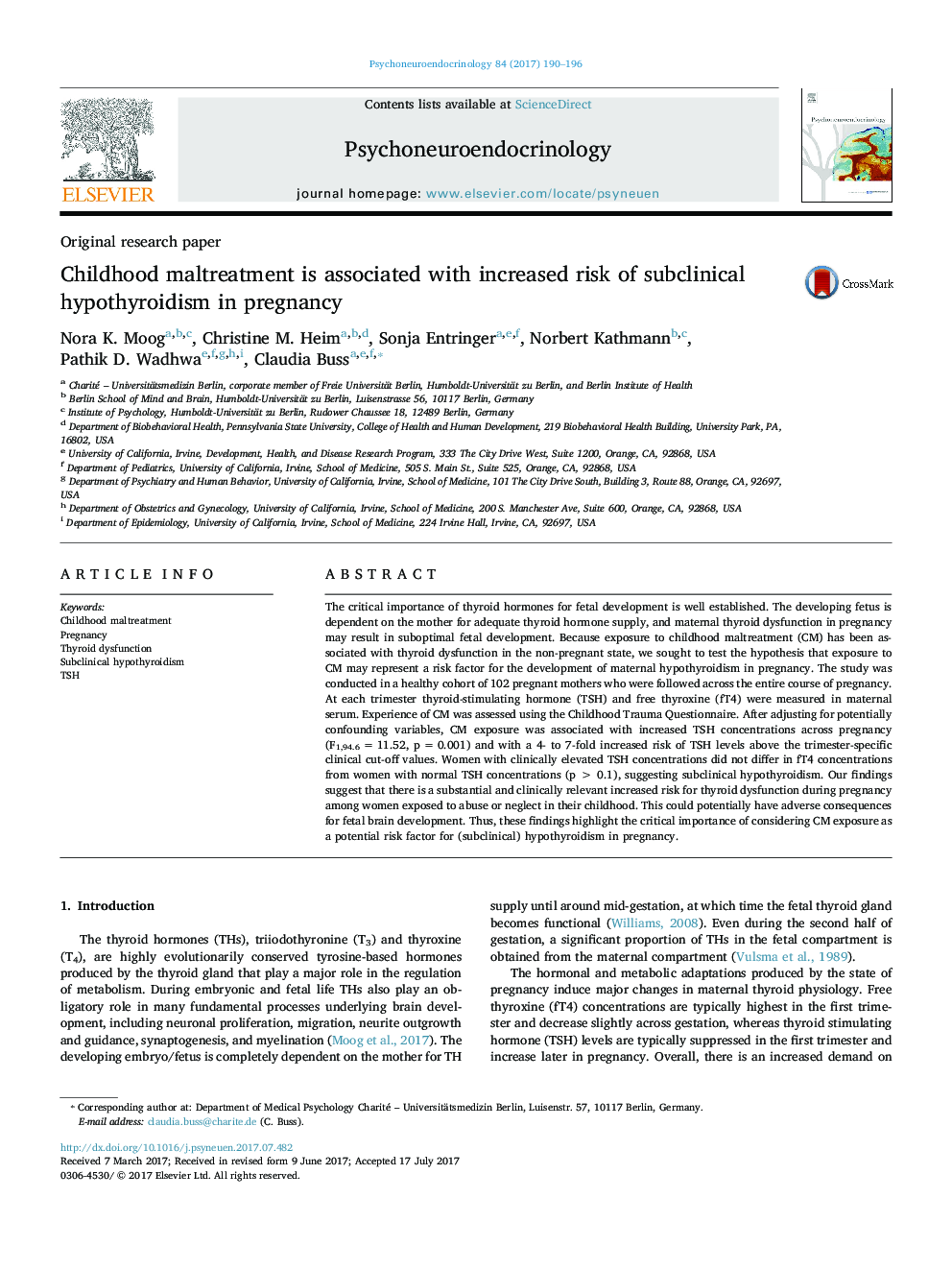| Article ID | Journal | Published Year | Pages | File Type |
|---|---|---|---|---|
| 4934217 | Psychoneuroendocrinology | 2017 | 7 Pages |
Abstract
The critical importance of thyroid hormones for fetal development is well established. The developing fetus is dependent on the mother for adequate thyroid hormone supply, and maternal thyroid dysfunction in pregnancy may result in suboptimal fetal development. Because exposure to childhood maltreatment (CM) has been associated with thyroid dysfunction in the non-pregnant state, we sought to test the hypothesis that exposure to CM may represent a risk factor for the development of maternal hypothyroidism in pregnancy. The study was conducted in a healthy cohort of 102 pregnant mothers who were followed across the entire course of pregnancy. At each trimester thyroid-stimulating hormone (TSH) and free thyroxine (fT4) were measured in maternal serum. Experience of CM was assessed using the Childhood Trauma Questionnaire. After adjusting for potentially confounding variables, CM exposure was associated with increased TSH concentrations across pregnancy (F1,94.6 = 11.52, p = 0.001) and with a 4- to 7-fold increased risk of TSH levels above the trimester-specific clinical cut-off values. Women with clinically elevated TSH concentrations did not differ in fT4 concentrations from women with normal TSH concentrations (p > 0.1), suggesting subclinical hypothyroidism. Our findings suggest that there is a substantial and clinically relevant increased risk for thyroid dysfunction during pregnancy among women exposed to abuse or neglect in their childhood. This could potentially have adverse consequences for fetal brain development. Thus, these findings highlight the critical importance of considering CM exposure as a potential risk factor for (subclinical) hypothyroidism in pregnancy.
Related Topics
Life Sciences
Biochemistry, Genetics and Molecular Biology
Endocrinology
Authors
Nora K. Moog, Christine M. Heim, Sonja Entringer, Norbert Kathmann, Pathik D. Wadhwa, Claudia Buss,
